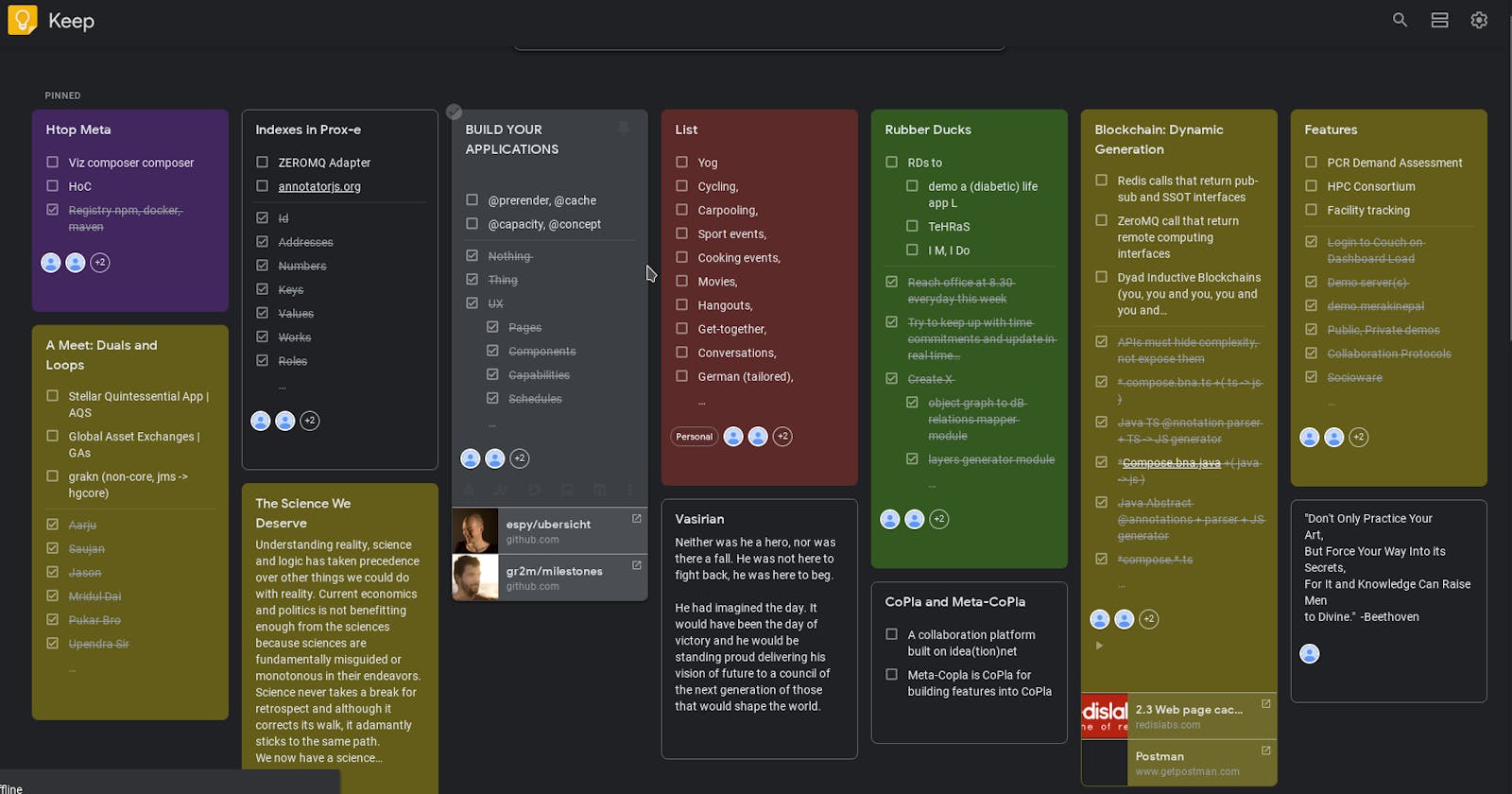We need to start using digital signatures instead of trying to show up everywhere with just our id and/or passwords.
Here are all the services that depend on digitally signed documents, emails and blobs:
File Services
There is a file service backed by a virtual filesystem agnostic of any actual filesystem till date or in the future. However, this should only be used by core library developers and almost never by application developers directly.
Message Services
There are message services for any two given nodes in our graph that have a direct or a virtual path or hyperedge between them. These can parse the account dumps or archives of all your past messaging and emailing services even before you port or connect them for live update sync with our message service feeds. Message services also either empower or use message queues, pipes, directives, functions and categories.
Envelope Services
These are essentially a container service for all our other services. It is used mainly for bundling data using data composition utilities or for bundling services using service composition in facades.
Web Services
Just like envelope services, web services are container services for all our other services for web-specific environments like browser, electron, node, or web view in hybrid apps.
Sync Services
Sync services are used mainly by the container developers who build envelops or webs as services. It should not be used directly by application developers either, for this reason, but always understood or configured by them to fit their application specific sync logic.
Preferences
Preferences are managed by globally and locally synced preference management algorithm set. These include preferences of the user and the user's system optimization AI that we will have soon.
Ordering Services
Special ordering services are required for our blockchains because we serve more than a million transactions per second trivially (even since our very first run). These services are capable or ordering our blockchain's blocks in O(1) time without wait-for-next or wait-for-end, or even wait-for-first constraints.
Membership Service
Roles and authorizations are created at the time or membership approval and revised after each epoch ends. Epoch is defined as beginning at the time of first run on the mainnet and the time of the last run of the same mainnet. It is strictly not concerned with the uptime of any fork that continued the service.
Certificates and Authorities
As our network is very much reliant on X509 certificates and digital signatures to every file, email or message text. we need to collaborate with a certificate authority in Nepal or just become a certificate authority ourselves.

